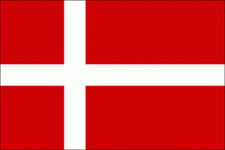
This report - produced through collaboration between the Danish Refugee Council (DRC) and researchers from Aarhus University - evaluates the benefits of providing resettled refugees with a thorough health examination shortly after they have arrived in Denmark. In general, the examinations are seen as a valuable asset for future integration, and the report includes a list of recommendations to improve their impact, including that all newly arrived refugees are offered an examination.
Danish municipalities are obliged by law to provide a thorough health examination to resettled refugees. Between 2013 and 2016 provision was mandatory for all refugees shortly after being granted asylum, but it is now provided at the discretion of each individual municipality, with only 2 of 98 choosing to do so. The report examines refugees resettled from DR Congo who arrived from camps in Rwanda to Denmark between December 2021 - the spring of 2023. All were offered examinations.
The health examinations are carried out by local GPs or by clinics specialising in non-European patients, of which there are three in the country. The report finds that examinations carried out by the clinics are more detailed and more useful than those conducted by GPs, and that the clinics also refer all resettled refugees for further examination and trauma-related treatment while GPs tend not to. The report also states that among GPs, there are large variations in knowledge and experience of refugee treatment.
Resettled refugees often have serious health issues, diagnosed as well as undiagnosed. Some are acute, others chronic, including HIV, hepatitis, tuberculosis, anaemia, lack of vitamin D and trauma/PTSD. Health information from the country of origin or the temporary host country and UNHCR is valuable if it can be obtained, but this is rarely possible for other groups of refugees.
The report makes the following recommendations:
- Health information from home or host country should be as detailed, accurate, and up-to-date as possible.
- Strong focus on mental health and trauma is needed.
- Professionals within social and health sectors should be given sufficient relevant knowledge and resources.
- Newcomers need support in accessing and navigating the health system.
- Attention should be paid to collaboration between professionals concerning follow-up and further referrals.
- Using interpreters is crucial, and they should have the specific skills needed for the task.
- Health examinations should be prioritised.
The report is currently only available in Danish. Questions can be emailed to the authors via udsatte@drc.ngo.
Details
- Authors
- Mads Ted Drud-Jensen, Joanna Skjoldan Hansen, Clara Fuglsbjerg Ebberup, Emilie Lund Mortensen
- Geographic area
- Danemark
- Contributor type
- Universitaires et expertsOrganisations-non-gouvernementales/société civile
- Original source
- Posted by
